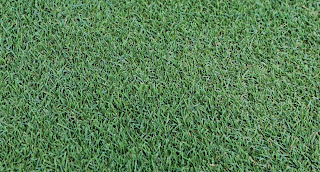In Kenya, the vibrant and diverse climate allows for a plethora of lawn grasses, each suited to different regions and uses. From the tropical coasts to the temperate highlands, there's a grass variety perfect for every landscape. Here’s a detailed guide to some of the most common lawn grasses in Kenya, their benefits, and their drawbacks to help you create the lush, green paradise you desire.
Advantages
- Shade
Tolerance: Ideal for shaded areas with large trees.
- Drought
Resistance: Minimal watering needed once established.
- Soft Texture: Perfect for recreational areas due to its comfortable feel.
Disadvantages
- Slow
Growth: Takes time to establish a full lawn.
- Higher Maintenance Costs: More expensive to establish and maintain compared to other types.
2. Kikuyu Grass (Pennisetum clandestinum)
Advantages
- Durability:
Excellent for high-traffic areas such as sports fields.
- Rapid
Growth: Quick to establish, providing swift green cover.
- Drought Tolerance: Very resilient once established, ideal for arid regions.
Disadvantages
- Invasive
Nature: Can spread aggressively, requiring regular control.
- High Initial Water Requirement: Needs frequent watering to establish.
3. Pemba Grass (Axonopus compressus)
Advantages
- Grows Well in Shade: excellent for areas with partial to full shade.
- Minimal Care Required: Once established, Pemba grass requires relatively low maintenance.
- Comfortable Underfoot: The grass has a soft, fine texture, making it ideal for lawns playground.
- Soil Stabilization: Its helps control soil erosion, particularly on slopes and embankments.
- Hardy Against Pests and Diseases: it's resistant to common lawn diseases and pests.
Disadvantages
- Takes Time to Establish: it can take longer time to establish a full, lush lawn.
- Requires Regular Watering: requires regular watering during dry periods.
- Can Spread Aggressively: Pemba grass can spread into garden beds and other areas if not properly managed.
- Struggles in Cold Climates: It's not suitable for cooler highland regions of Kenya..
4. Paspalum Grass ( Paspalum vaginatum)
Advantages
- Salt Tolerant: Ideal for coastal areas, Paspalum handles salty conditions better than most grasses.
- Heat Tolerant: It thrives in hot climates and requires less water.
- Durable: Paspalum is robust and can withstand heavy foot traffic.
Disadvantages
- High Maintenance: Needs regular mowing and fertilization to maintain its lush appearance.
- Invasive: Can spread aggressively, potentially invading other garden areas.
5. Zoysia Grass (Zoysia spp.)
Advantages
- Drought Tolerant: Zoysia is highly drought-resistant, suitable for dry areas.
- Low Maintenance: Once established, it requires minimal mowing and fertilization.
- Resilient: It can handle moderate foot traffic without significant damage.
Disadvantages
- Slow Establishment: Zoysia takes a long time to establish, often requiring sod installation for quicker results.
- Expensive: The initial cost of Zoysia grass can be higher compared to other types.
6. Fescue Grass (Festuca spp.)
Advantages
- Cool Climate Adaptation: Fescue is perfect for the cooler highland regions of Kenya.
- Shade Tolerant: It grows well in partially shaded areas, offering flexibility in garden design.
- Fine Texture: Fescue provides a fine, dense lawn that is aesthetically pleasing.
Disadvantages
- High Water Requirement: It needs regular watering, especially during dry spells.
- Susceptible to Disease: Fescue can be prone to fungal diseases, requiring vigilant care.
7. Bermuda Grass (Cynodon dactylon)
Advantages
- Heat
Tolerant: Perfect for hot climates.
- Durable:
Great for high-traffic lawns.
- Low Water Requirement: Needs minimal watering once established.
Disadvantages
High Maintenance: Requires regular mowing and care.
- Thatch Build-up: Frequent dethatching needed.
Conclusion
Selecting the right grass involves considering your
region’s climate, soil type, and the intended use of the space. Each grass type
has unique characteristics that make it suitable for specific needs. By
understanding these factors, you can create a beautiful, functional lawn that
enhances your outdoor space.
Contact us at 0720091000 for expert landscaping
services across Kenya. Let us transform your outdoor space into a green
paradise!
sources: (Agriinnovationhub, nature-and-garden, crystalgarden.com, asepsis-Kenya, ancoturf.com, baked bricks,Barmac, yates, agroduka, pennington seed, seed world, bethel farm)









No comments:
Post a Comment